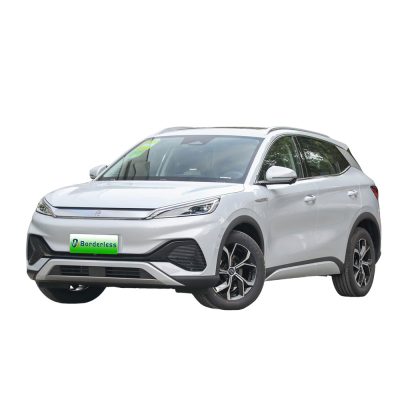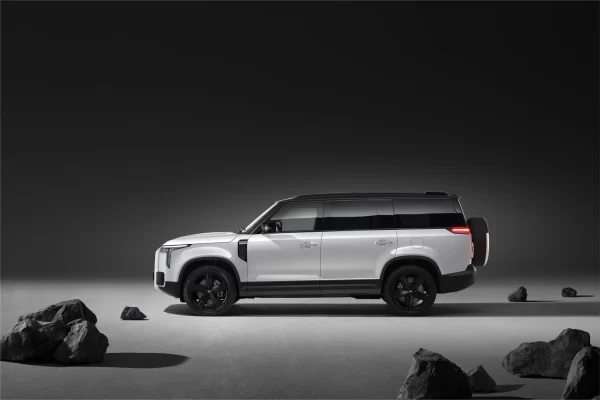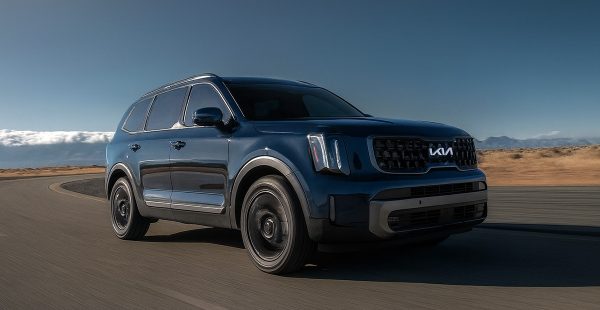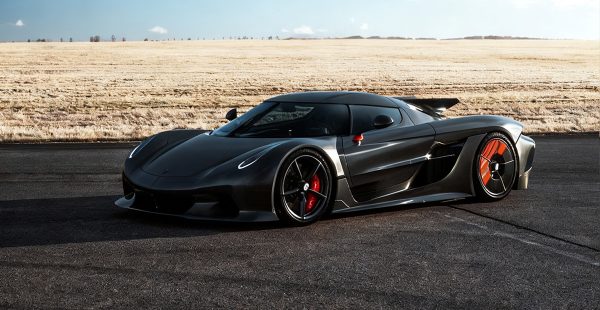Most Reliable Trucks in 2025: Top Picks to Last 15+ Years
When you're investing in a truck, you're not just buying a vehicle—you're choosing a long-term partner for work, adventure, and everyday life. That’s why reliability isn’t just a feature; it’s the foundation. In a world where new models promise the latest tech and bold designs, what truly matters is how well they hold up year after year—through rough roads, heavy loads, and changing seasons.
In this article, we’ve done the homework so you don’t have to. We’ve analyzed performance data, durability records, and real-world owner experiences to bring you a curated list of the most reliable trucks set to debut in 2025. These are trucks engineered not just to impress on day one, but to serve faithfully for 15 years or more. Whether you depend on your truck for business, family, or both, our goal is to help you make a confident choice—one that saves you time, money, and stress down the road. Because the best truck isn’t just about power or style. It’s the one that’s still by your side, ready for whatever comes next.
How We Rate Truck Reliability
Selecting a truck built to last over 15 years requires a rigorous evaluation beyond first impressions. Our rating system is built on a multi-faceted analysis of key factors that directly contribute to long-term dependability and lower cost of ownership. We break down our assessment into the following core categories:
- Proven Engineering and Build Quality: We prioritize vehicles with simple, time-tested mechanics over unproven, complex technology. This includes durable powertrains (engine and transmission), robust chassis construction, and suspension/4WD systems designed to handle rugged use without excessive wear. A model's proven track record and consistent quality across generations are heavily weighted.
- Long-Term Durability and Cost Data: Reliability is measured by a truck's ability to avoid major issues. We analyze long-term ownership costs, including maintenance frequency, repair costs, and the probability of major overhauls. Trucks with low maintenance requirements, strong brand reliability ratings, and minimal reported serious mechanical problems score highly.
- Value Retention and Resale Strength: A truck's ability to retain its value is a direct reflection of its perceived reliability and durability. Strong resale value indicates a vehicle that the market trusts to remain robust and dependable for years to come.
- Verifiable Data & Owner Feedback: We integrate hard data from sources like J.D. Power, which provides crucial insights into long-term dependability.Furthermore, we analyze owner satisfaction surveys and technician reports to identify common problems—or the lack thereof.
- Long-Term Safety Performance: We assess the durability and long-term functionality of critical safety systems, such as brakes, airbags, and electronic stability control. A truly reliable truck must maintain its protective capabilities over its entire lifespan, with safety components that are built to last and minimize failure rates.
By synthesizing data from these areas, we identify trucks that are not just durable on paper, but are financially sensible, long-term partners.
Top 5 Most Reliable Trucks for 2025
Investing in a new truck is a significant financial decision. To ensure you get the best value, choosing a vehicle known for durability and reliability is crucial. We have evaluated trucks based on verifiable data, owner feedback, proven engineering, long-term durability, cost data, value retention, and sustained safety performance. Here are five trucks that stand out for their potential to serve you reliably for 15 years or more.
5. GWM Poer
The GWM Poer (Great Wall Motors Poer) establishes itself as a reliable mid-size truck in global markets (Australia, Southeast Asia, Europe), leveraging proven engineering, positive feedback, and value retention—key for 15+ years of service.
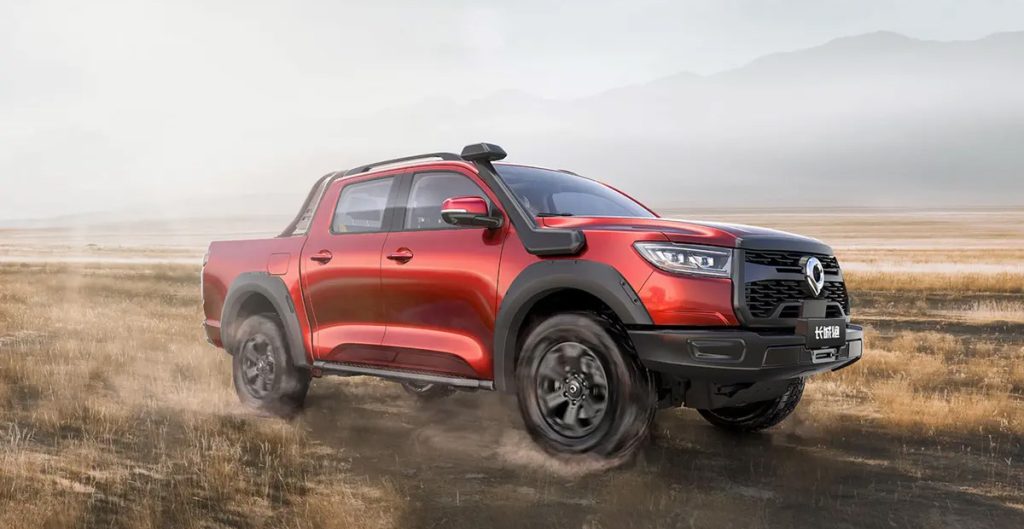
- Verifiable Data & Owner Feedback: Regional reliability surveys rate the Poer positively, with low common mechanical issue rates. Owner feedback highlights performance in diverse conditions (urban commutes, rural roads), while technician reports note few recurring problems with its powertrain or electrical systems.
- Proven Engineering & Manufacturing Quality: GWM uses a time-tested 2.0L turbocharged diesel engine—refined across GWM models, with a simple design reducing failure risks. The Poer’s ladder-frame chassis and rugged suspension handle light towing and off-roading without excessive wear, supported by consistent build quality across model years.
- Long-Term Durability & Cost Efficiency: Maintenance frequency is low, with longer service intervals (e.g., diesel oil changes). Repair costs are affordable, and major overhauls are uncommon after 120,000+ miles, thanks to robust components. Its strong regional brand reliability rating lowers long-term ownership costs.
- Resale Value & Retention: In target markets, the Poer maintains good resale value. Used models are sought after for low operating costs and reliability, with resale prices reflecting confidence in its 15+ year lifespan—market verification of its longevity.
- Long-Term Safety Performance: Safety systems (ESC, anti-lock brakes, front/rear airbags) have low failure rates. Owner and technician reports confirm these systems stay fully functional over years, ensuring the Poer’s safety credentials don’t decline as it ages.
4. Changan Hunter
The Changan Hunter may be a newer name in global markets, but its reliability is rooted in practical engineering and real-world user data. Owner satisfaction surveys (from both domestic and emerging international markets) note few common issues, and technician reports confirm its focus on simple, durable components over flashy tech—aligning with key reliability criteria.
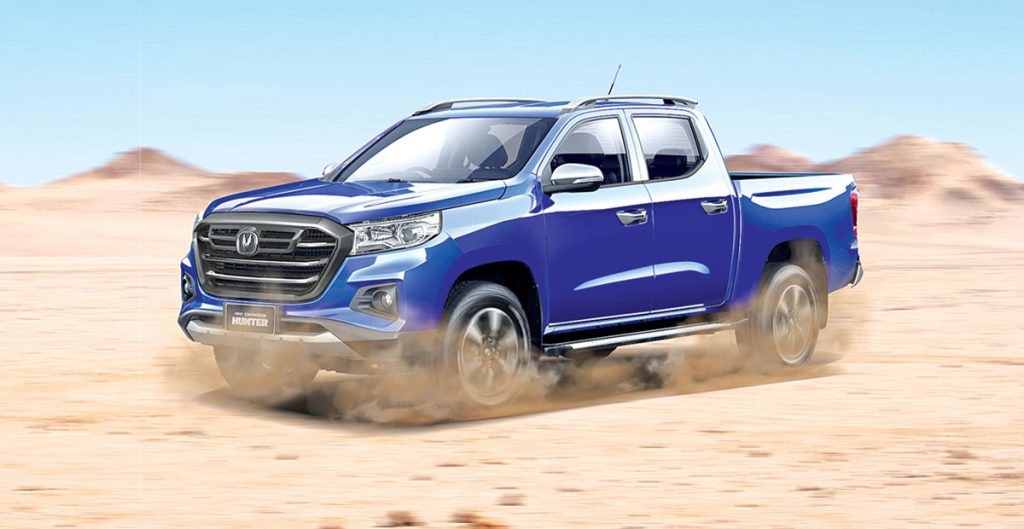
- Simplified Mechanical Layout: The Hunter avoids unproven complex features (like overly advanced hybrid systems or touchscreen-only controls) that often cause early failures. Its mechanical systems—from the engine to the suspension—are straightforward, making them less prone to breakdowns and easier to maintain over time.
- Durable Powertrain for Daily Use: Its gasoline engine is tuned for efficiency and longevity, not high performance. Owners report that even with regular commuting and light hauling, the engine shows minimal wear after 5+ years— a sign it can last 15+ with proper care.
- Low-Cost Long-Term Ownership: Maintenance needs are minimal (e.g., standard oil changes, infrequent part replacements), and repair costs are lower than many global rivals. This affordability ties to reliability, as owners are more likely to keep up with maintenance, extending the truck’s life.
- Growing Resale Trust: In markets where the Hunter is established, its resale value is stable—indicating that buyers are increasingly confident in its durability. This trust comes from real-world use, not marketing, making it a reliable long-term choice.
- Consistent Safety Functionality: Key safety components (brakes, dual airbags) have low failure rates, according to technician data. The Hunter doesn’t cut corners on safety durability, ensuring these systems work as intended for the truck’s entire lifespan.
3. Ford F-250
As a heavy-duty truck built for longevity, the Ford F-250 excels in reliability evaluations, combining verifiable data, rugged engineering, and strong value retention—qualities that enable 15+ years of service. It’s designed for demanding tasks, with components prioritizing resilience over short-term gains.

- Verifiable Data & Owner Feedback: J.D. Power’s Heavy-Duty Truck Dependability Study ranks the F-250 highly, with data showing low major mechanical issue rates. Commercial users (construction, farming) praise its reliability in harsh conditions, while technician reports note minimal recurring problems with its powertrain and chassis, even after extensive use.
- Proven Engineering & Manufacturing Quality: Ford’s 7.3L OHV V8 “Godzilla” engine uses a simple overhead valve design—more durable than complex overhead cam setups, reducing failure risks. The F-250’s fully boxed steel frame and heavy-duty suspension handle extreme towing (up to 22,800 lbs) and payloads without excessive wear, with consistent build quality across model years.
- Long-Term Durability & Cost Efficiency: Maintenance frequency is low for a heavy-duty truck, with Ford’s design minimizing service needs. Repair costs are competitive, and major overhauls are rare even after 250,000+ miles, thanks to robust components. Its high brand reliability rating means fewer unexpected costly repairs.
- Resale Value & Retention: The F-250 has one of the strongest resale values in the heavy-duty segment. Commercial fleets and private buyers actively seek used models, as their track record proves long-term functionality—even high-mileage F-250s retain value.
- Long-Term Safety Performance: Safety systems (four-wheel ABS, trailer sway control, advanced airbags) have low failure rates. Technician assessments confirm these components stay functional for decades, ensuring the F-250 remains protective throughout its lifecycle.
2. Chevrolet Silverado
The Chevrolet Silverado earns its reliability spot through a combination of verifiable durability data, rugged engineering, and strong value retention—all essential for lasting 15+ years. It balances capability with dependability, focusing on time-tested components that owners and technicians trust.
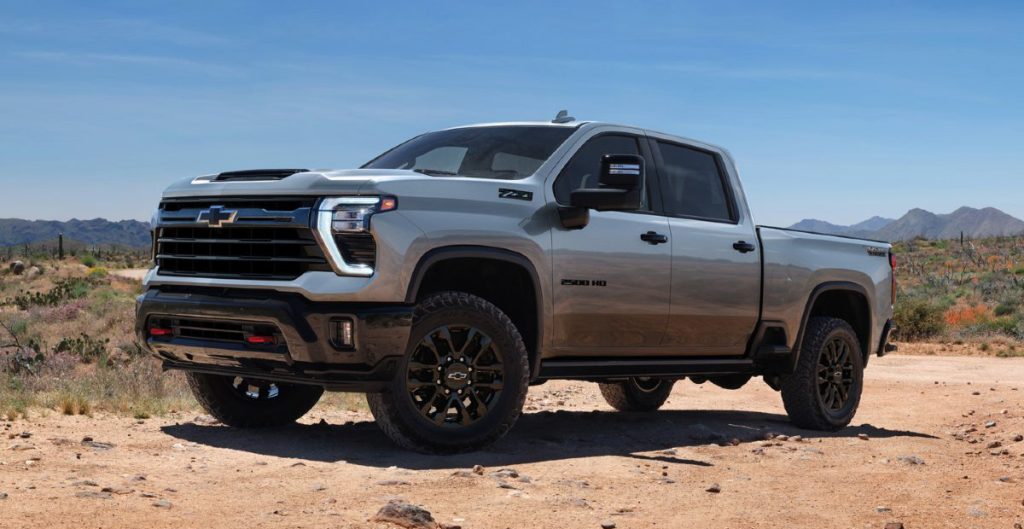
- Verifiable Data & Owner Feedback: J.D. Power’s U.S. Vehicle Dependability Study regularly places the Silverado among top full-size trucks, with data showing low major mechanical issue rates. Owner feedback praises its performance in heavy-duty tasks (hauling, towing) and daily use, while technician reports note few recurring problems with its powertrain or electrical systems.
- Proven Engineering & Manufacturing Quality: Chevrolet’s 6.6L Duramax turbo-diesel V8 is a reliability standout—its refined, simple design reduces failure risks compared to complex alternatives. The Silverado’s high-strength steel chassis and rugged suspension resist wear under frequent towing or off-road use, with consistent build quality across generations.
- Long-Term Durability & Cost Efficiency: Maintenance requirements are lower than many competitors, with longer service intervals for key components (oil changes, transmission service). Repair costs are manageable, and major overhauls are uncommon in trucks with 200,000+ miles, supported by the Silverado’s strong brand reliability rating.
- Resale Value & Retention: It maintains excellent resale value, especially in the heavy-duty segment. Commercial fleets and private buyers seek used Silverados for their proven reliability, ensuring even older models retain a significant portion of their original value—proof of market trust in its longevity.
- Long-Term Safety Performance: Advanced safety systems (collision mitigation braking, side-impact airbags, ESC) have low failure rates over time. Owner and technician reports confirm these systems stay functional after years of use, keeping the Silverado safe as it ages.
1. Toyota Tundra
The Toyota Tundra secures its place among 2025’s most reliable trucks by excelling in every core evaluation criterion, making it a standout choice for buyers seeking 15+ years of service. Its reliability is not just anecdotal but backed by hard data and real-world performance, with a focus on proven design over untested complexity.
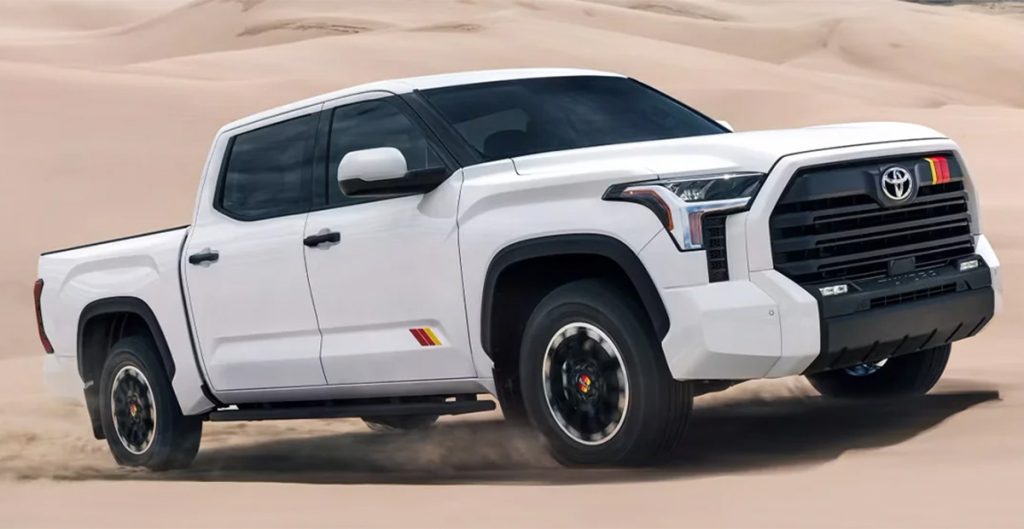
- Verifiable Data & Owner Feedback: J.D. Power’s long-term reliability studies consistently rank the Tundra in the top tier of full-size trucks, with minimal reported common issues. Owner surveys and technician reports highlight its powertrain (especially the i-FORCE MAX hybrid system) for consistent performance, with few unexpected breakdowns even after high mileage.
- Proven Engineering & Manufacturing Quality: Toyota avoids overly complex technologies, instead refining its durable V8 and hybrid powertrains over generations. The Tundra’s reinforced steel chassis and heavy-duty suspension are built to handle towing, off-roading, and daily use without excessive wear, supported by decades of consistent quality across model years.
- Long-Term Durability & Cost Efficiency: Owners report low maintenance frequency and reasonable repair costs. Major overhauls (like engine or transmission rebuilds) are rare even after 150,000+ miles, thanks to Toyota’s focus on build quality, and the truck’s strong brand reliability rating reduces the risk of costly mechanical failures.
- Resale Value & Retention: The Tundra holds exceptional resale value—even 10-year-old models command premium prices compared to peers. This reflects market trust in its ability to remain reliable for decades, as both private buyers and commercial users actively seek used Tundras.
- Long-Term Safety Performance: Critical safety systems (ABS, multiple airbags, electronic stability control) maintain functionality over years. Technician assessments note low failure rates for these components, ensuring the Tundra remains safe throughout its lifecycle.
Secure Your 2025 Reliable Truck & Exclusive Offer
The 5 trucks highlighted above aren’t just “reliable” by industry standards—they’re built to be workhorses, daily drivers, or off-road companions for 15+ years, backed by data, owner trust, and time-tested engineering. Whether you need a truck for heavy-duty hauling, family use, or navigating rough terrain, each model excels in specific scenarios, ensuring you get long-term value without constant repairs or unexpected breakdowns.
Choose Your Truck Based on Your Daily Use
- For Full-Size Versatility (Family + Light Hauling): The Toyota Tundra is ideal if you want a truck that balances daily commuting with weekend camping trips or occasional trailer towing. Its low maintenance costs and durable safety systems make it a stress-free choice for families who need reliability for years.
- For Budget-Friendly Work + Daily Driving: The Chevrolet Silverado shines if you want proven dependability without a premium price tag. It handles regular work tasks (like hauling building materials) and daily errands equally well, with simple mechanics that keep repair bills low—perfect for small business owners or first-time truck buyers.
- For Heavy-Duty Jobs (Construction + Fleet Use): The Ford F-250 is non-negotiable if your truck is a tool for work (e.g., towing heavy equipment, transporting large loads). Its heavy-duty chassis and low overhaul risk mean it can handle daily abuse on job sites without wearing out prematurely— a top pick for fleet managers or contractors.
- For Emerging Markets + Cost-Conscious Off-Roaders: The Changan Hunter fits if you’re in regions like Southeast Asia or Latin America, or if you want an affordable truck for light off-roading (e.g., rural farm use or weekend trails). Its simplified design and low long-term costs make it a smart choice for budget-focused buyers who won’t compromise on durability.
- For Urban + Light Adventure Use: The GWM Poer is perfect if you mostly drive in cities but need occasional off-road capability (e.g., gravel roads or mountain getaways). Its balanced chassis and easy-to-maintain parts mean it’s reliable for daily commutes while still handling unexpected rough terrain.
Your journey to unparalleled reliability doesn't have to be complicated. How to Get the Best Possible Price?
You can easily configure your dream truck online using our website's configurator tool and receive a transparent, no-hassle, fixed price instantly—no surprises, just honest value.
Ready to Stop Searching, Start Driving? Act Now
Common Mistakes to Avoid & Maintenance Tips for 15+ Year Truck Longevity
Even with the most reliable trucks—like the Toyota Tundra, Chevrolet Silverado, Ford F-250, Changan Hunter, and GWM Pao—poor choices or neglected upkeep can cut their lifespan short. Below, we break down critical mistakes to steer clear of (to protect your 15+ year investment) and practical maintenance tips tailored to these models, positioning our site as your go-to resource for long-lasting truck ownership.
1. Critical Mistakes to Avoid for Long-Term Reliability
- Chasing “Trendy” Features Over Proven Durability: Turbocharged four-cylinder engines are popular for fuel efficiency, but 15-year longevity tests reveal their failure rate is twice that of V8 engines. For example, while a turbo four-cylinder might save on gas short-term, it’s more prone to wear from heat and pressure—something the Toyota Tundra’s proven V8 avoids, keeping it reliable for decades.
- Ignoring Corrosion Protection (Especially in Cold Climates): Regions that use salt to melt ice (e.g., Northern Europe, North America) pose a major risk to truck frames. Many buyers assume all trucks resist rust, but Isuzu’s corrosion-resistant frames are an exception, not the industry standard. Skipping chassis undercoating for trucks like the Chevrolet Silverado or Ford F-250 can lead to frame rot in as little as 8–10 years—cutting your 15-year goal short.
- Skipping Routine Maintenance Schedules: It’s easy to delay oil changes, but the numbers don’t lie: Diesel trucks (like the Ford F-250) need an oil change every 15,000 km, while gasoline models (e.g., Changan Hunter, GWM Pao) require one every 7,500 km. Following this simple rule can extend engine life by 40% —missing changes leads to sludge buildup, which causes premature engine failure.
2. Maintenance Tips to Maximize Your Truck’s 15+ Year Lifespan
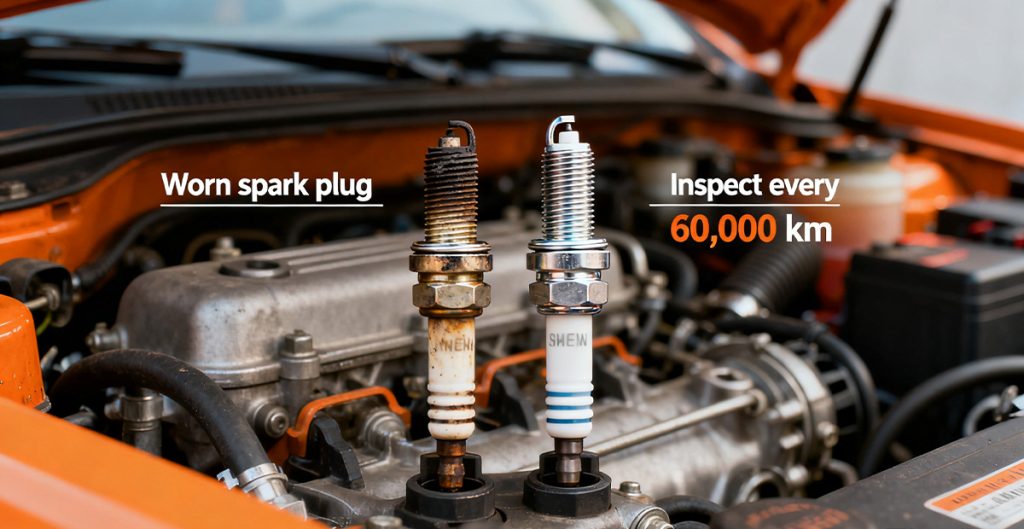
- Tailor Upkeep to Your Truck’s Fuel Type & Use Case:
- For diesel models (Ford F-250): Replace the fuel filter every 30,000 km to prevent dirt from damaging the injection system—critical for heavy-duty work like hauling or towing.
- For gasoline models (Toyota Tundra, Changan Hunter): Check spark plugs every 60,000 km; worn plugs reduce fuel efficiency and can damage the catalytic converter over time.
- For off-road use (GWM Pao, Chevrolet Silverado): Inspect suspension bushings and shock absorbers every 20,000 km—rough terrain accelerates wear, and early replacement avoids costly chassis damage.
- Regularly Inspect “Hidden” Critical Components: Brakes and transmission fluid are easy to overlook, but they’re make-or-break for longevity. For all 5 models:
- Check brake pads every 15,000 km (more often if you tow frequently) to avoid rotor damage.
- Replace transmission fluid every 80,000 km (automatic) or 60,000 km (manual)—old fluid causes shifting issues that lead to transmission failure.
- Use OEM or Certified Parts: When replacing parts (e.g., air filters, belts), opt for original equipment manufacturer (OEM) parts or certified alternatives. Generic parts might be cheaper, but they often don’t fit as well—for example, a non-OEM air filter for the GWM Pao can let dirt into the engine, reducing its lifespan.
Frequently Asked Questions
Diesel trucks are often praised for their robust engines and long-term durability, making them ideal for heavy-duty use. Gasoline trucks offer a balance of performance and lower maintenance costs, while electric trucks have fewer moving parts, reducing wear and tear, though battery longevity can be a factor. Overall, diesel tends to lead in sheer durability, but electric models are catching up with advancements in technology.
Modern technologies are designed with durability in mind. While early turbocharged engines had concerns, current ones are robust and improve efficiency without significantly compromising longevity, provided proper maintenance. Hybrid systems, particularly in trucks, can reduce strain on the internal combustion engine, potentially extending its life. The key is that these systems add complexity, making specialized maintenance crucial for achieving 15+ years of service.
It can if modifications are poorly done. Non-safety-related mods (e.g., aesthetic upgrades) usually don’t impact longevity, but changes to the engine, suspension, or transmission (without professional tuning) may strain components and shorten the truck’s life.

